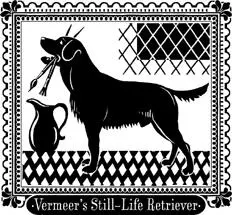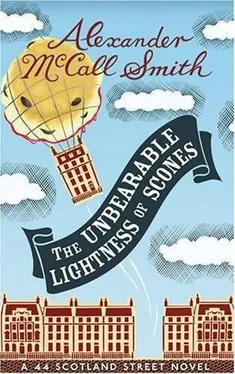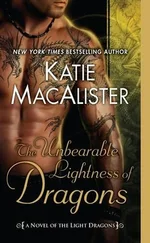Alexander Smith - Unbearable Lightness of Scones
Здесь есть возможность читать онлайн «Alexander Smith - Unbearable Lightness of Scones» весь текст электронной книги совершенно бесплатно (целиком полную версию без сокращений). В некоторых случаях можно слушать аудио, скачать через торрент в формате fb2 и присутствует краткое содержание. Жанр: Триллер, на английском языке. Описание произведения, (предисловие) а так же отзывы посетителей доступны на портале библиотеки ЛибКат.
- Название:Unbearable Lightness of Scones
- Автор:
- Жанр:
- Год:неизвестен
- ISBN:нет данных
- Рейтинг книги:4 / 5. Голосов: 1
-
Избранное:Добавить в избранное
- Отзывы:
-
Ваша оценка:
- 80
- 1
- 2
- 3
- 4
- 5
Unbearable Lightness of Scones: краткое содержание, описание и аннотация
Предлагаем к чтению аннотацию, описание, краткое содержание или предисловие (зависит от того, что написал сам автор книги «Unbearable Lightness of Scones»). Если вы не нашли необходимую информацию о книге — напишите в комментариях, мы постараемся отыскать её.
Unbearable Lightness of Scones — читать онлайн бесплатно полную книгу (весь текст) целиком
Ниже представлен текст книги, разбитый по страницам. Система сохранения места последней прочитанной страницы, позволяет с удобством читать онлайн бесплатно книгу «Unbearable Lightness of Scones», без необходимости каждый раз заново искать на чём Вы остановились. Поставьте закладку, и сможете в любой момент перейти на страницу, на которой закончили чтение.
Интервал:
Закладка:
Domenica leaned forward and peered at the portrait. “It has that feel, doesn’t it? That richness.” She paused. “Is it signed?”
Angus shook his head. “Raeburn didn’t sign. You decide these things on technique and on the documentary evidence.”
“And the technique in this painting is right?”
Angus opened his hands in a gesture of uncertainty. “I think so,” he said. “But then there are people who know more about these things than I do.”
“James Holloway?”
“Precisely. We’ll obviously have to show it to him and see what he says.” He moved away from the painting and took an outsize, red-bound book from a shelf. “This is Armstrong’s book on Raeburn,” he said. “There’s a long list of his sitters at the back here. Look.”
“And is Burns mentioned?”
“No. But that doesn’t mean too much. This list is not exhaustive.”
Domenica straightened up and took a few steps back to admire the painting from more of a distance.
“You know,” she said, “I’m not sure why women found Burns attractive.”
Angus frowned. “But Burns was handsome,” he protested. “Look at him.”
“To an extent,” said Domenica. “It’s what one might call an easy face. Reasonably harmonious.”
“Perhaps women liked him because he liked them,” said Angus. “Isn’t that how women feel?”
“I’ve heard that said,” answered Domenica.
63. A Dug’s a Dug for a’ That
What happened next was to change Domenica’s view of Angus and, indeed, of Cyril. It was in part a sudden moment of mystical insight, a vision of agape , a Cloud of Unknowing moment; but it was also a simple realisation on her part of the qualities of both man and dog. And the agent of this transformation was to be Robert Burns himself.
She was standing in the studio with Angus, looking at the Raeburn portrait of Burns. Cyril, who had been sitting on his blanket in another corner of the room, now joined them. He looked up at Domenica, whom he liked, and wagged his tail. Domenica, however, absorbed in the portrait, barely noticed this greeting and continued to talk to Angus. Cyril then sat down and looked about him. As a dog, he had that vague sense that all dogs possess that something was about to happen, although he was not sure what it was. A walk could be ruled out – he had already had that; and dinner-time, if it ever came, was hours away. So the most he could hope for was a word of encouragement or recognition, a pat on the head perhaps, some gesture which indicated to him that the human world was aware of his presence.
He looked about him, and it was at this point that he saw the portrait of Burns. Now dogs are usually insensitive to art. Even the dogs of great painters, whose existence has been footnoted by art historians, have been largely unaware of the artistic greatness of their masters. Botticelli’s dog, Nuovolone, an example of the no longer extant breed of Renaissance Terrier, appeared to be indifferent to the large canvases that dominated his master’s studio. And Vermeer’s dog, Joost, who was of an even rarer breed, a Still-Life Retriever – dogs known for their ability to retrieve objects which had fallen from the still life table – even he paid no attention to the light which shone forth from his master’s paintings. This is because dogs rely on smell, and for them a picture is an object with a single smell: a smell forged into one by the separate odours of stand oil, pigment, the hair of the paint-brush and so on. So if a dog comes into a studio, the smell of a painting bears no relation to the objects it depicts. Even a painting of something which would normally be expected to excite the attention of a dog – a hare hung up after the hunt, for example – will not be seen for what it is, but will just be something made of paint and a few other things. In this sense dogs are extreme reductionists.
But now Cyril, having failed to elicit a response from Domenica, turned and looked in the direction in which she and Angus were looking. And suddenly he saw Burns staring back at him. When this happened, he did nothing to begin with, but then he very slowly walked across the studio, approaching Burns as he would a stranger whose intentions he had not yet ascertained.
“Look,” said Angus, nodding in Cyril’s direction. “Cyril’s interested.”
Domenica looked at Cyril and smiled. “Surely not,” she said. “Doesn’t he only see in one dimension?”
“Watch,” whispered Angus.
Cyril was now crouching in front of the painting, his ears down, staring fixedly at the portrait. Then he wagged his tail, a quick backwards and forwards movement, like the motion of windscreen wipers in a storm. Angus now moved forward and went down on his haunches, next to Cyril.
“That’s Robert Burns,” Domenica heard him say to the dog. “Mr. Burns, this is Cyril. A gash an’ faithfu’ tyke/As ever lap a sheugh or dyke/His honest, sonsie, bawsn’t face/Ae gat him friends in ilka place/His breast was white, his touzie black/His gawsie tail wi upward curl/Hung owre his hurdies wi’ a swirl.”
Cyril looked up at Angus and smiled, as if acknowledging a compliment.
“Aye,” said Angus. “You liked dugs, Rabbie. And this dug here is your Luath, or as close to him as you’ll find these days. He’s a good enough dog, I think. He’s certainly been good enough for me.”
He placed a hand on Cyril’s head and ruffled his fur gently. Cyril looked up at his master in appreciation, and then returned his gaze to Robert Burns.
Angus addressed Domenica over his shoulder. “You’ll remember Caesar and Luath, won’t you, Domenica?”
Domenica did, but had not thought of the poem for years. But Burns was still there, engraved in her memory, drummed into her as a small child at school, in an age when children still learned poetry by heart, and took those lines as baggage, for comfort throughout their lives.
“I remember them,” she said.
“Caesar was the high-born dog,” Angus went on. “And Luath was a bit like Cyril here. Nothing grand. And they talked about the cares of men and whether the rich or the poor had the better time of it.”
Cyril now advanced slowly towards the painting. He was making a strange snuffling sound, a whimpering, looking up at Robert Burns, as if in some sort of supplication. Then, very slowly, as if expecting a rebuff, he touched the surface of the painting with his tongue.
“Did you see that?” Angus said over his shoulder. “That’s the biggest compliment a dog can pay. That’s his homage.”
Now Cyril had had enough; the moment was broken. With a final glance at Burns, he turned round and made his way back to his blanket on the other side of the room. And as he crossed the floor, he smiled at Domenica, the sunlight from the high studio windows glinting off his single gold tooth.
“I think he knew,” said Angus, rising back up to his feet. “Don’t you think he sensed that this was somebody special?”
In normal circumstances, Domenica would have dismissed this as sheer anthropomorphism. A dog could not appreciate Burns; to say otherwise would be to give in to the weak sentimentalism that animal owners were so prone to and that she always found so ridiculous. But there was something infinitely touching about what she had observed. Cyril, the malodorous Cyril, who was just a dog, no more, had seen something in the painting and had been visibly affected by it. She could not be indifferent to that. She could not be.
“I think that Cyril has just authenticated this painting,” pronounced Angus.

64. Childhood Memories
Интервал:
Закладка:
Похожие книги на «Unbearable Lightness of Scones»
Представляем Вашему вниманию похожие книги на «Unbearable Lightness of Scones» списком для выбора. Мы отобрали схожую по названию и смыслу литературу в надежде предоставить читателям больше вариантов отыскать новые, интересные, ещё непрочитанные произведения.
Обсуждение, отзывы о книге «Unbearable Lightness of Scones» и просто собственные мнения читателей. Оставьте ваши комментарии, напишите, что Вы думаете о произведении, его смысле или главных героях. Укажите что конкретно понравилось, а что нет, и почему Вы так считаете.












